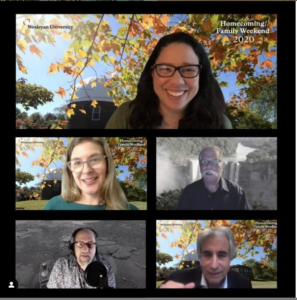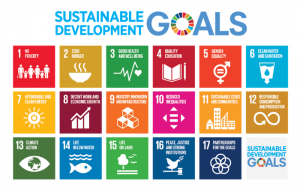 As part of the 18th annual Where On Earth Are We Going? Robert F. Schumann Environmental Studies Symposium, David Grinspoon and Martha Gilmore presented their talk, “Habitability and Life on Venus,” on October 17, 2020.
As part of the 18th annual Where On Earth Are We Going? Robert F. Schumann Environmental Studies Symposium, David Grinspoon and Martha Gilmore presented their talk, “Habitability and Life on Venus,” on October 17, 2020.
At the beginning of the presentation, Grinspoon pointed out that, “Before the Space Age, there was an image of Venus as an earth like, but also tropical planet.” There were reasons for conceiving of Venus that way: its close proximity to Earth, similar size, and cloud covering. This idea of Venus’s habitability was proved false when the spacecraft Mariner II reached Venus in 1962 and revealed that Venus was “not at all earth like … so hot that no life could exist on that surface.” This disillusionment with Venus was documented in an editorial in the New York Times, which determined the discovery as “the beginning of the end of mankind’s grand romantic dreams.”

 The College of the Environment is proud to announce a new partnership with the US branch of the
The College of the Environment is proud to announce a new partnership with the US branch of the